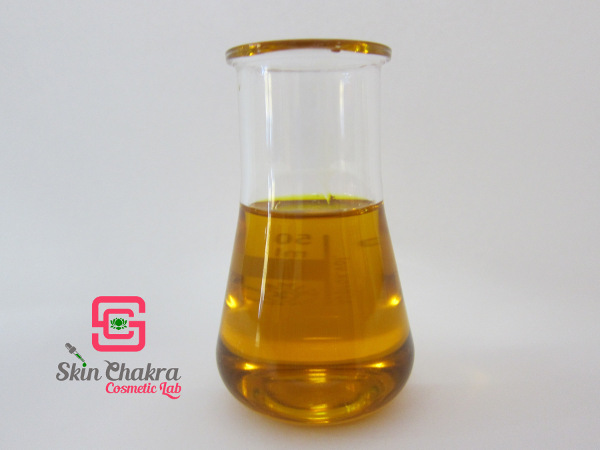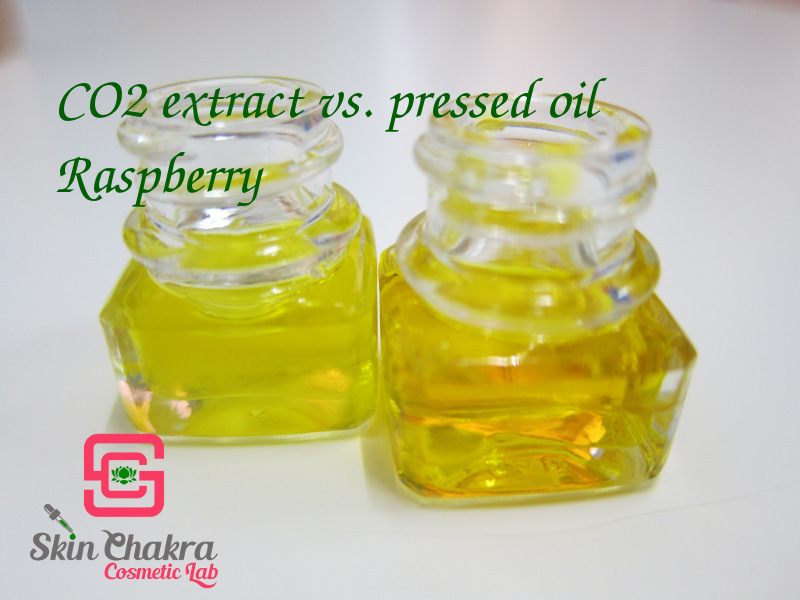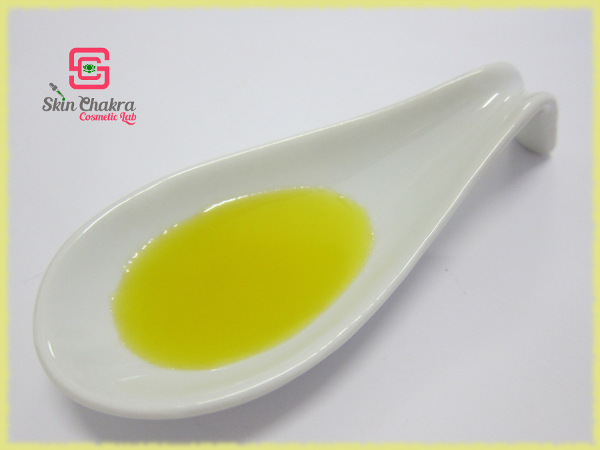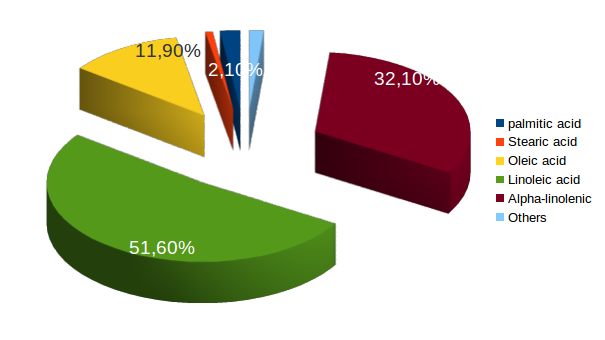Continuing our previous posts of "CO2 extract vs. pressed oil", today we're going to compare raspberry seed oil and raspberry seed CO2 extract.
But before we proceed, I suggest you go and have a look at these posts:
This is a blog post I've written about CO2 extracts for Formula Botanica.
Raspberry seed oil is one of those unique liquid oils with a low content of oleic acid. Its main constituents are linoleic and alpha-linolenic acids (omega 6 and omega 3 fatty acids).
Apart from the fixed oil (cold pressed), a CO2 extract is available and we're going to compare them for you.

The CO2 extract has a slightly lighter colour compared to the pressed oil (usually it's the other way for other oils and extracts)

Another difference is the fruity note in the CO2 extract that is (at least to my nose) absent in the oil.

Let's have a look at the chemical composition of the oil and the extract.

| Common name |
Raspberry seed oil |
Raspberry seed CO2 extract |
| INCI name |
Rubus ideaus seed oil |
Rubus ideaus seed extract |
| CAS # |
84929-76-0 |
84929-76-0 |
| EC# |
284-554-0 |
284-554-0 |
| Fatty acid spectrum |
|
|
| Palmitic acid |
2,1% |
2,4% |
| Stearic acid |
0,8% |
0,89% |
| Oleic acid |
11,9% |
12,3% |
| Linoleic acid |
51,6% |
59,2% |
| Linolenic acid |
32,1% |
23,5% |
| Palmitoleic acid |
trace |
0,11% |
| Vaccenic acid |
trace |
1,3% |
| Arachidic acid |
trace |
0,37% |
| Sum of tocopherols |
0,32% |
0,22% |
| Refractive index |
1,4800 |
1,4813 |
| Density (20 oC) |
0,928 g/cm3 |
0,9265 g/cm3 |
As you can see, they are very similar in the profile and almost exchangeable (except from the difference in the price which is compensated by the longer shelf-life of the extract compared to the pressed oil)
I hope you find this information useful and helpful.
BeHappy and have fun





